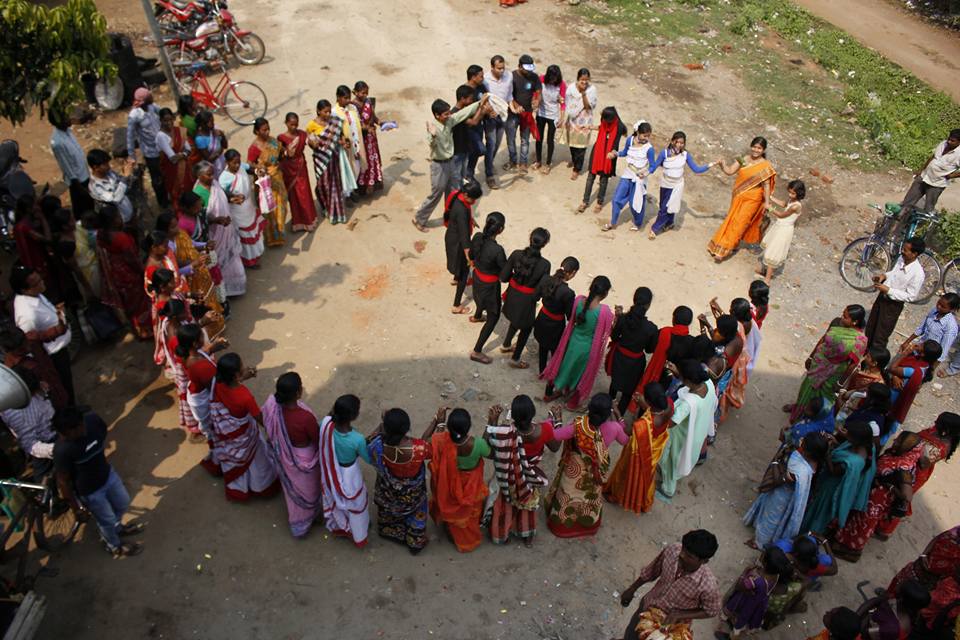About SPAN

SPAN’s focused areas of engagement are (1) Child rights with special focus on the protection, education and participation of urban and rural children having their life and interest taken in consideration, (2) youth led development projecting their increased capacity to participate through education, skill and economic sustainability, (3) gender as a cross cutting aspect, women assume responsibility and accountability to become more and more visible in the social sector engagement, economic ventures and political participation having understood reproductive rights and define their new role, (4) child budget analysis, and (5) community managed livelihood resource support (CMLRS) impacting the way of life amongst the rural populace.
SPAN came into being in 1989 working with the issues of children of migrant and displaced population. It gradually expanded to STs, SCs and minority groups who due to insipid livelihood practices leaving their children in situation of gross violation of rights.
Recognising the prerogatives and concerns of such sections of population SPAN endeavoured to work on child rights holistically. Thus it also work to create an enabling situation where people will participate and organise initiatives to find an answer to their local problems by way of creating alternative model against the existing development process which apparently have failed to respond peoples’ need and aspiration.
Internalising the findings which is experience based it was perceived that unless the overall well-being of children, youth and women are seriously addressed in real terms no lasting social change for the better can be effected.
Children
Thus the rights perspectives in parity with the UNCRC and Constitutional provisions were referred to locate the children’s needs to ensure children’s right to survival, protection, development and participation both in the urban and rural set up.
SPAN does policy level advocacy both at state and national level by being involved with CACL (Campaign Against Child Labour), NCPCR (National Commission for Protection of Child Rights) and now NACG (National Action Coordination Group) and National and State Right to Education Forum.
Children have the right to participation according to their age and maturity. SPAN facilitates platform for children for their informed and willing participation. It led Children’s Alternative report on the implementation of UNCRC.
SPAN does the child budget analysis since last six years. It works as resource organisation both for Government and NGOs.
Youth
Young aged 15 to 24 are 1.2 billion of the world’s human capital. Young people have an important role and according to the declaration of Agenda 21 adopted at the 1992 United Nations Conference.
SPAN commissions a youth mapping study. The study assesses current approaches to youth within its policy and programming and finds that there is a need to address youth issues.
SPAN envisages a youth led development, an approach which is driven and guided by young people that draws upon their energy, development creativity and skills to create positive change.
The study advocates that development assistance should work for the benefit of youth (as target beneficiaries), with youth as partners, and be shaped by youth as leaders. This is an assets approach to youth participation in development.
Gender
One of the articles of the CEDAW (Article 11) states that “ States / Parties shall take all appropriate measures to eliminate discrimination against women in the field of employment in order to ensure (a) The right to work as an inalienable right of all human beings; ( b) the right to the same employment opportunities, including the application of the same criteria for selection in matters of employment…(f) the right to protection of health and to safety in working conditions, including the safeguarding of the function of reproduction.”
Narishakti (women power) is the expression of women as federation in the districts of Bankura, Birbhum, murshidabad and North 24 Parganas. It actually ensures the gender aspects in its own development framework and also in the State development programme.
It also works in strengthening any organisations including Self Help Groups (SHGs) in the areas of entrepreneurship, leadership and accountability as an agency of their own.

